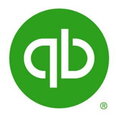Outsourcing in the Business world today. There are both pros and cons to outsourcing, all of which must be considered before reaching a decision.
Outsourcing production can have some advantages for a new start-up product provided there are existing suppliers qualified to manufacture the items to your specifications. Control over the new product can be documented in contractual agreements. It is always a good idea to have more than one supplier, if possible, to ensure you can meet your product delivery demands.
However, multiple suppliers can create problems with maintaining consistency of quality.
Outsourcing also means you would not have to invest heavily in developing your own infrastructure. Your market research and your business plan should give you a basic idea of your potential sales volume and selling price, from which you could calculate a break-even point in terms of recouping your initial investment when you switch to outsourcing.
Here are some advantages of outsourcing:
Financial benefits—Clean up your balance sheet by eliminating assets, and have a more stable cash flow
Strategic optimization—Think about your company’s core mission and whether it is relevant to continue certain operations
Better management of the outsourced activity—In theory, you can choose a supplier that is a leader in the field
Market discipline—You can align your costs with those of suppliers in the field
Technology—In theory, you gain access to state-of-the-art technologies
Flexibility—The resources no longer used in one area can be redirected to the company’s core operations
Here are some risks of outsourcing:
Loss of expertise—You lose know-how and skills that may prove critical to your long-term competitiveness. Information from suppliers helps in new product development.
Dependence on the supplier—If you resume carrying out the outsourced activity yourself, it can take years to reach the level of performance you used to enjoy. But if the supplier’s service deteriorates, or if their price rises, you may want to take back the activity.
Loss of control over costs—Improved production facilities may generate larger gains than outsourcing. Look at internal solutions before considering external solutions.
Here are some reasons not to outsource a production facility:
You have highly qualified employees
You need contact with suppliers and customers
Research and development is done in the plant
Production operations are properly focused
You have control over production costs
Here are some lessons on outsourcing
Look for compatible goals
Focus on the best solution, not the lowest price
Use a very detailed contract and up-to-date legal experts
Share risks
Involve key players
Document the transition phase
Communicate clearly from the beginning
When outsourcing, look for suppliers who are credible in the field and compatible with your needs, remain flexible as needs change, have the skills you need, can save you money and offer the quality of service you need.








